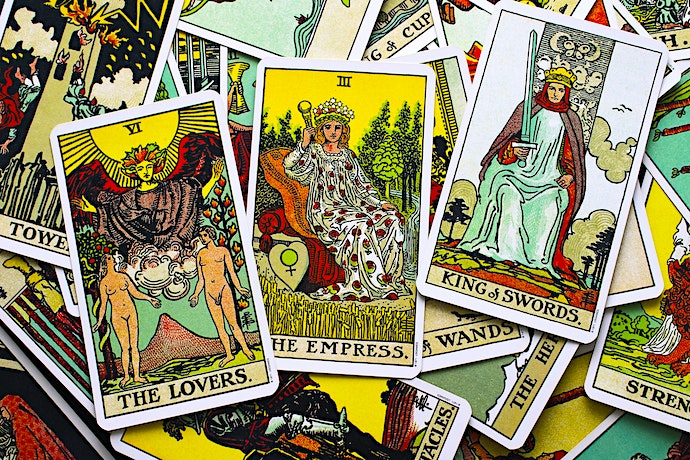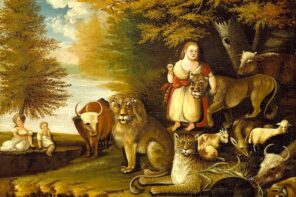NPR recently published an article from an episode of its Life Kit podcast titled “Tarot can’t predict the future, but it can help you make that big decision,” presenting and endorsing the viewpoint of their guest:
“As tarot reader and writer Michelle Tea puts it, some people mistakenly come to tarot for a prediction of the future, when it’s really about self-reflection. ‘If you’re a person that wants to integrate more spirituality into your life or to look at life a bit more philosophically.’”
As a scholar of contemporary American spirituality, my first question is who gets to decide what tarot is, and how do influential media outlets like NPR decide whom to platform? What I can tell you is that, for many, tarot is most certainly about predicting the future, it is very much supernatural, and the attempt to privilege a tarot of rationality and self-reflection is a familiar pattern in modern American spirituality.
Tarot is having something of a moment in the US. Numerous explanations have been proffered, but it isn’t terribly mysterious when you consider that, in general, non-traditional and occult spiritual practices are on the rise as traditional religious affiliation declines, especially among younger populations.
For many, tarot is a form of divination. The cards pulled reveal secrets about the past, present, and future. Many treat their tarot decks as if they themselves have knowledge, as if they are spiritual beings. Certain decks are said to have volatile personalities capable of taking an attitude with the tarot reader should they fail to heed the deck’s advice.
Basically, for many American users of tarot, the knowledge derived has a supernatural source, and this knowledge can occasionally contain insight into the future. To be clear, I’m neither invalidating Tea’s view, nor claiming that the views of tarot supernaturalists are more valid, I’m simply noting that the way NPR presents Tea’s view as the correct one not only obscures views of tarot we have no reason to view as less legitimate, but also happens to obscure the view that less privileged cultures are more likely to hold.
The attempt to present tarot as a rational tool for introspection that can be picked up by people of virtually any religious belief is common in American spirituality today. It has, for example, been prevalent in Buddhism in recent years, though in this case it can be traced back to mid-20th century enthusiasts and popularizers like “the Alans” (Ginsburg and Watts), and even earlier, to late-19th century European colonization of Buddhist Asia.
Scholars of religion now recognize a widespread attempt by Western colonial thinkers (often with cooperation from reform-minded Asian Buddhists) to depict Buddhism as something like an enlightened philosophy rather than a “mere religion.” These Western colonial thinkers created the image of a pure Buddhism that fit the standards of Western Protestant liberal thought, distancing Buddhism from what they perceived as unenlightened elements like appeals to various gods, colorful rituals, and the complex material culture of Buddhism in order to render it palatable and rational for Western use.
We’ve seen this phenomenon most recently in the appropriation of mindfulness for Western use. Mindfulness is separated from Buddhism and sanitized for use by the American spiritual and medical establishments. Again, this isn’t to say that mindfulness isn’t actually a useful cognitive tool, but merely to highlight that mindfulness is indeed a Buddhist spiritual technique and that an effort has been made to westernize it.
In the spiritually eclectic United States, it’s common to repurpose spiritual beliefs and practices for broad use—and even to market them for a profit. Spiritual practitioners themselves recognize this. In fact, the NPR piece came to my attention when it was shared by an influential Gen Z witch and occultist on Twitter, who noted that, while the article might serve as a good guide for beginners to get started with tarot, they also think “articles like this can spark a conversation about how occult practices are watered down in the mainstream—‘it’s just self-reflection, not that weird woo-woo stuff.’”





